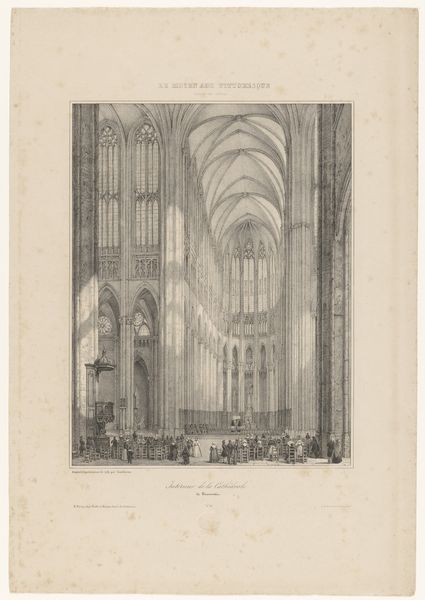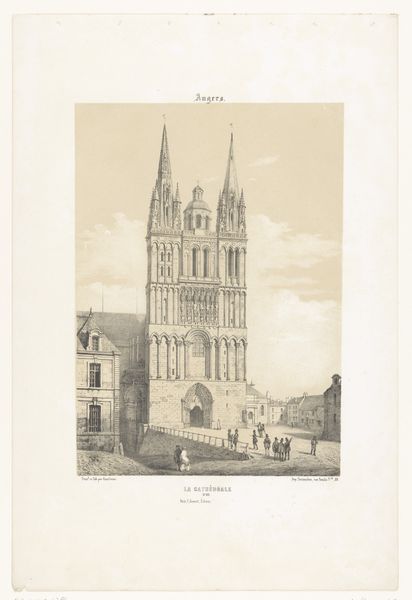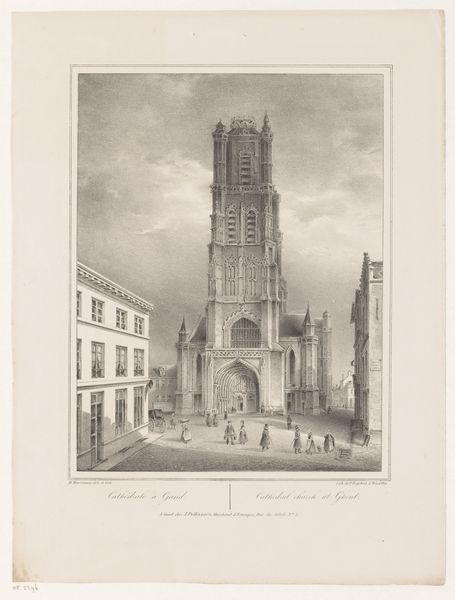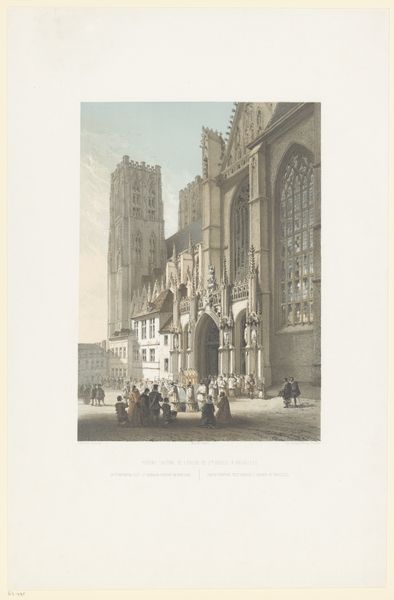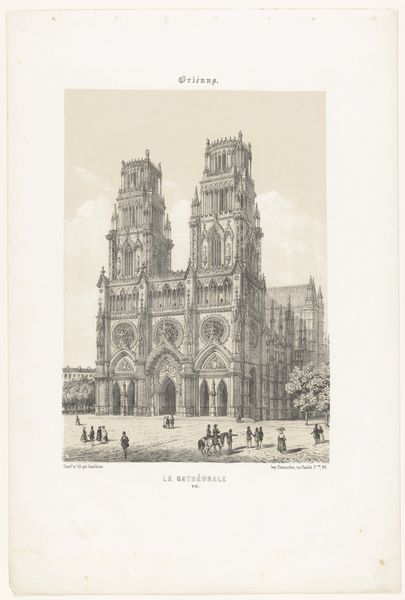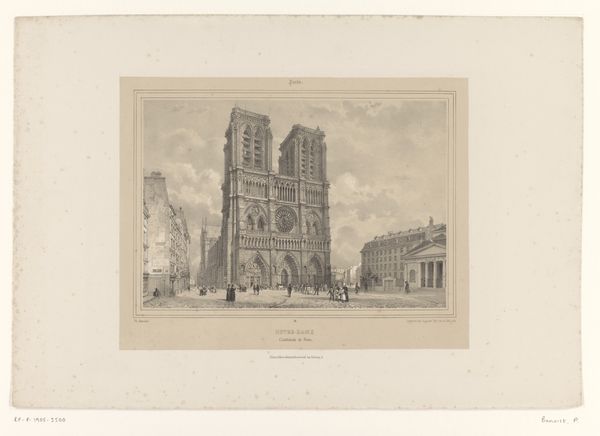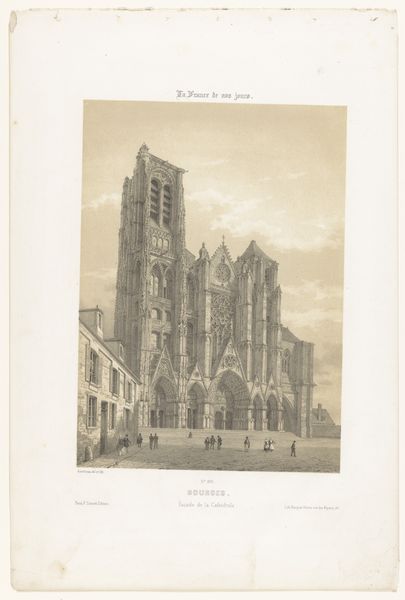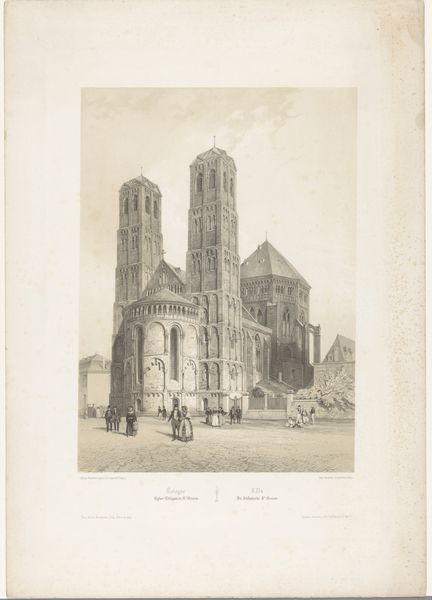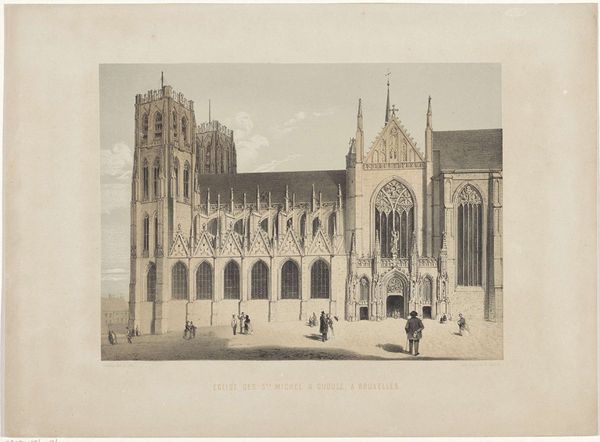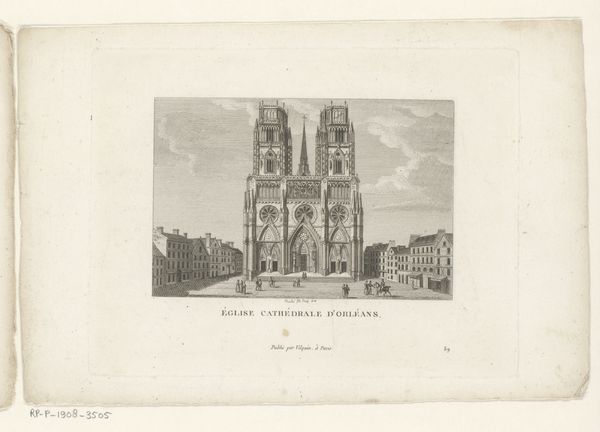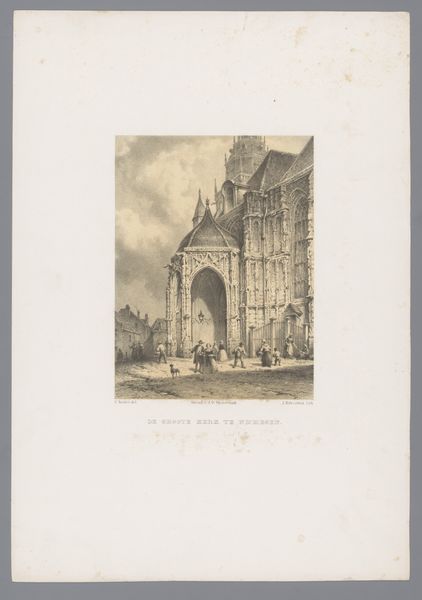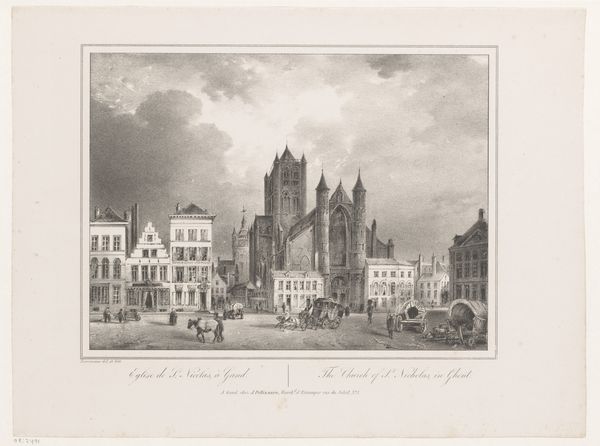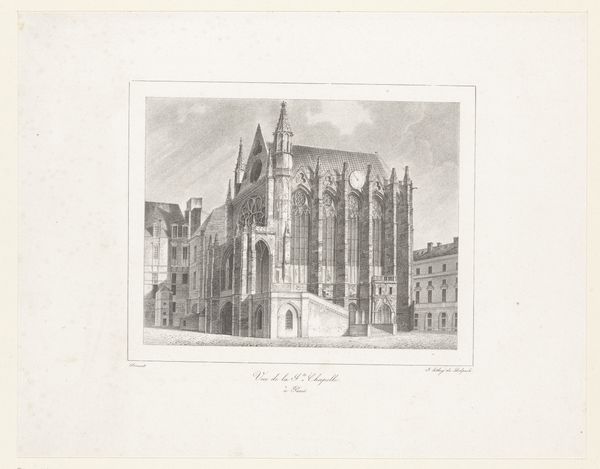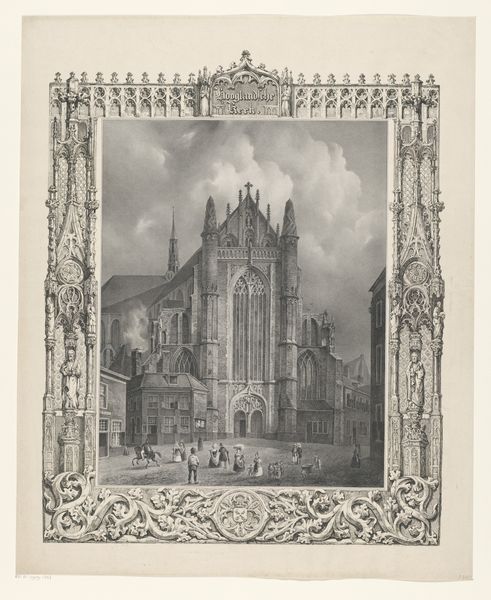
Zicht op de kathedraal van Sint-Pieter en Sint-Paulus in Nantes 1853 - 1856
0:00
0:00
leonaugusteasselineau
Rijksmuseum
#
aged paper
#
light pencil work
#
pale palette
#
parchment
#
light coloured
#
old engraving style
#
personal sketchbook
#
old-timey
#
19th century
#
historical font
Dimensions: height 433 mm, width mm
Copyright: Rijks Museum: Open Domain
Léon Auguste Asselineau created this print of the Cathedral of Saint Peter and Saint Paul in Nantes using lithography. In lithography, an image is drawn on a flat stone or metal plate with a greasy crayon, then treated with chemicals so that only the drawn parts will hold ink. The printmaker then dampens the stone, applies ink, and presses paper against it. The resulting image can achieve a high level of detail and subtle tonal gradations, as seen in the delicate rendering of the cathedral’s facade. The print is part of a series titled ‘La France de nos jours’, or ‘France today’ which speaks to the democratizing effect of printmaking in the nineteenth century. Lithography allowed for the wide dissemination of images, bringing art and architecture to a broader public. It also provided employment for skilled artisans, even as industrialization transformed other sectors of the economy. Considering the materials, making, and social context of this print allows us to appreciate it as more than just a representation of a cathedral. It becomes a testament to the power of art to capture and reflect the spirit of an era, and to challenge traditional distinctions between fine art and craft.
Comments
No comments
Be the first to comment and join the conversation on the ultimate creative platform.
